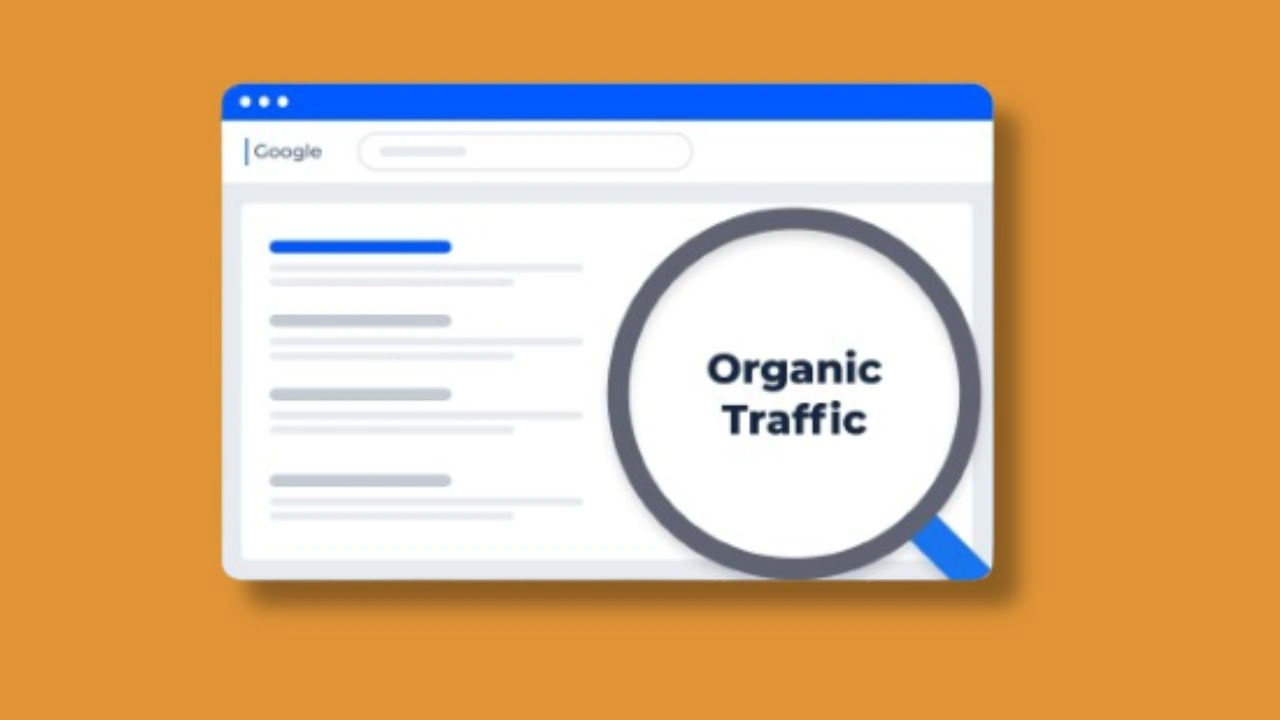Understanding what does organic search mean in Google Analytics is important for digital specialists and website owners, who want to evaluate the site’s performance without relying on the ad paid ads. Organic discovery refers to traffic that comes from unpaid search engine results on your site. In Google Analytics, this traffic is classified under the “Organic Search” channel, so users can track how visitors seek their site through natural listing on search engines like Google, Bing, or Yahoo.
What is Organic Search in Google Analytics?
Simply put, what does organic search mean in Google Analytics? It refers to the segment of organic search traffic that originates from non-paid (organic) results of a search engine directing users to your website. When someone types a query into Google and clicks on a link that isn’t an advertisement, that visit contributes to your organic search traffic. Google Analytics classifies this under the “Organic Search” channel in the acquisition reports.
According to HubSpot, 53.3% of all websites receive traffic from organic search sources.
How Google Analytics Tracks Organic Search Traffic
Google Analytics identifies and classifies automatic traffic sources based on referral data. When someone rises from the engine of your site, the analysis code reads the URL, which contains information about the search engine and registered keywords (if available). This data is then collected under the organic search channel, which provides insight into what does organic search mean in Google Analytics.
You can access it by navigating it:
Acquisition> All Traffic> Channels> Organic Search
Why Is Organic Search Important for Your Website?
There are many reasons why organic discovery holds an important value:
- Cost-effective: Unlike paid ads, organic traffic is free.
- Permanent: It creates visibility for a long time.
- High intentions: Users who find you systematically are usually more interested and engaged.
- Trust factor: People are often dependent on sponsored ads on organic results.
A strong organic look also complements services such as Google Analytics consulting services, offering better insights and strategic decision-making skills.
Organic Search vs Paid Search
| Metric | Organic Search | Paid Search |
| Cost | Free | Requires budget |
| ROI | Long-term | Short-term |
| Trust | Higher | Moderate |
| Control | Limited | Full control |
Paid search gives instant visibility, but organic traffic ensures a sustainable future. Tools like Google tag management consulting services can help in aligning both strategies efficiently.
How to Increase Organic Search Traffic in Google Analytics
Here are some practical tips to enhance your organic visibility:
Keyword optimization: To ensure that your content ranks well, it is necessary to research and integrate the relevant keywords that users seek. Focusing on both keywords with short tail and long tail lets your site attract a wide target group. Tools such as Google Keyword Planner and Ahrefs can help identify the right keywords for the target.
High-quality content: Material organic search is the spine of success. The offer of valuable, informative and attractive materials not only improves the user experience but also increases the possibility of feedback and social shares. This material should address user issues and provide solutions to their problems and ensure that it is both useful and official.
Backlink building: Receiving high-quality feedback from reputable websites helps to establish reliability and confidence with the search engine. The guest post focuses on obtaining feedback through the partnership and making materials that naturally attract attention.
Mobile-friendly design: With the growing number of users who reach websites via smartphones, it is important to have a mobile-friendly website. Google has a significant impact on mobile friendliness as part of its ranking algorithm, so make sure your site is responsive on all devices.
Website speed optimization: A quick-loading site is important for both user experience and SEO. The rejection rate in slow loading times can increase, and the ranking can be negatively affected. Tools such as Google Pagespeed Insights can help point to areas that require improvement.
- Keyword optimization
- High-quality content
- Backlink building
- Mobile-friendly design
Participating in a website redesign agency can improve the site’s user experience and search engine rankings, which can further increase organic search traffic.
Metrics to Monitor Under Organic Search in Google Analytics
When analyzing what organic search means in Google Analytics, they are the top metric to monitor:
- Increased
- Bounce frequency
- Average session period
- Per session page
- Measure perfection
Google Analytics lets you compare the performance of organic traffic against other channels. For deep insights, consider running a Google analytics audit checklist to ensure tracking accuracy.
Common Challenges in Organic Search Tracking
There are some restrictions on organic search data in Google Analytics:
- Not given: Google stops keyword data from secure findings.
- Tracking across devices: Difficult to track users on many devices.
- Bot traffic: Sometimes, data distorts.
These challenges can be addressed through third-party integration and professional website maintenance services that ensure clean and accurate data collection.
Tools That Complement Organic Search Tracking
- Increase your Google Analytics setup with devices:
- Google Search Console: Provides insight into search queries.
- Semrush / Ahrefs: Keywords provide tracking and feedback data.
- Hotjar: User monitoring behavior on your pages.
Tieing b2b web design agency can ensure that these devices are properly integrated into the hill of your site.
Real-World Example of Organic Search Success
As a travel website development company, a travel agency wants to promote organic traffic. By optimizing blog content for long-tail keywords, improving mobile responsiveness and getting travel blogs’ feedback, the company increased by more than 62%. Google Analytics confirmed this growth through the Organic Discovery Channel, helping the agency better understand what does organic search mean in Google Analytics and how it reflects unpaid traffic from the search engine.
Aligning SEO Strategy with Google Analytics
Understanding what organic discovery means in Google Analytics allows Aberor to coordinate the SEO efforts more efficiently. It also includes:
- Set the goal and KPI
- SEO Dashboard Creating
- Regular revision
These initiatives can be streamlined using Google Analytics consulting services and secure data -mechanized decisions.
Conclusion
In summary, what does organic search mean in Google Analytics mean just more than one data point – this is a reflection of your SEO efficiency. With the help of experts such as the right tracking, strategic materials and maintenance services for websites and Google Tag Management Consultancy services, you can make this calculation a strong growth driver.
Make sure your analytics setup is strong using a professional Google Analytics audit checklist, and do not hesitate to consult agencies specialized in websites about Redesign Agency or B2B Web Design Agency skills. For niche markets, even a development company for journeys can benefit from understanding and adaptation for organic search performance.
When you know what does organic search mean in Google Analytics, you can start reviewing your data and create smart SEO strategies to improve your online presence.
FAQ’s
What does organic search mean in Google Analytics?
Organic Discovery Google represents one of the most important traffic sources in Google Analytics, referring to visitors who reach your site via an unpaid list on the Search Engine Results page (SERP). These results are natural entries that appear under sponsored materials, such as advertising and payment campaigns. Unlike paid traffic, organic search traffic is acquired through SEO efforts instead of advertising expenses. Understanding what does organic search mean in Google Analytics, it is necessary to measure the efficiency of your SEO strategies and identify the correct source of development on your site.
What does it mean if organic search is high?
Organic search refers to the process of appearing in natural search engine results, without the use of paid ads. This happens when your site search is prominent on the motor results pages (SERP -S), which is due to its relevance and value for users’ search questions.
What is the difference between organic and direct traffic in Google Analytics?
The short version is: Direct traffic refers to users who write your site in the URL. Organic traffic refers to users who find your site through a search engine.
How do I track organic traffic in Google Analytics?
To track pages driven by organic search, begin by navigating to Reports > Engagement, then select Pages and Screens. Scroll down to view the data. Keep in mind that this report includes all site visitors, not just those from organic search. To filter the data, click on ‘Traffic Source’ and select the specific factor you wish to analyze.






Leave a Reply